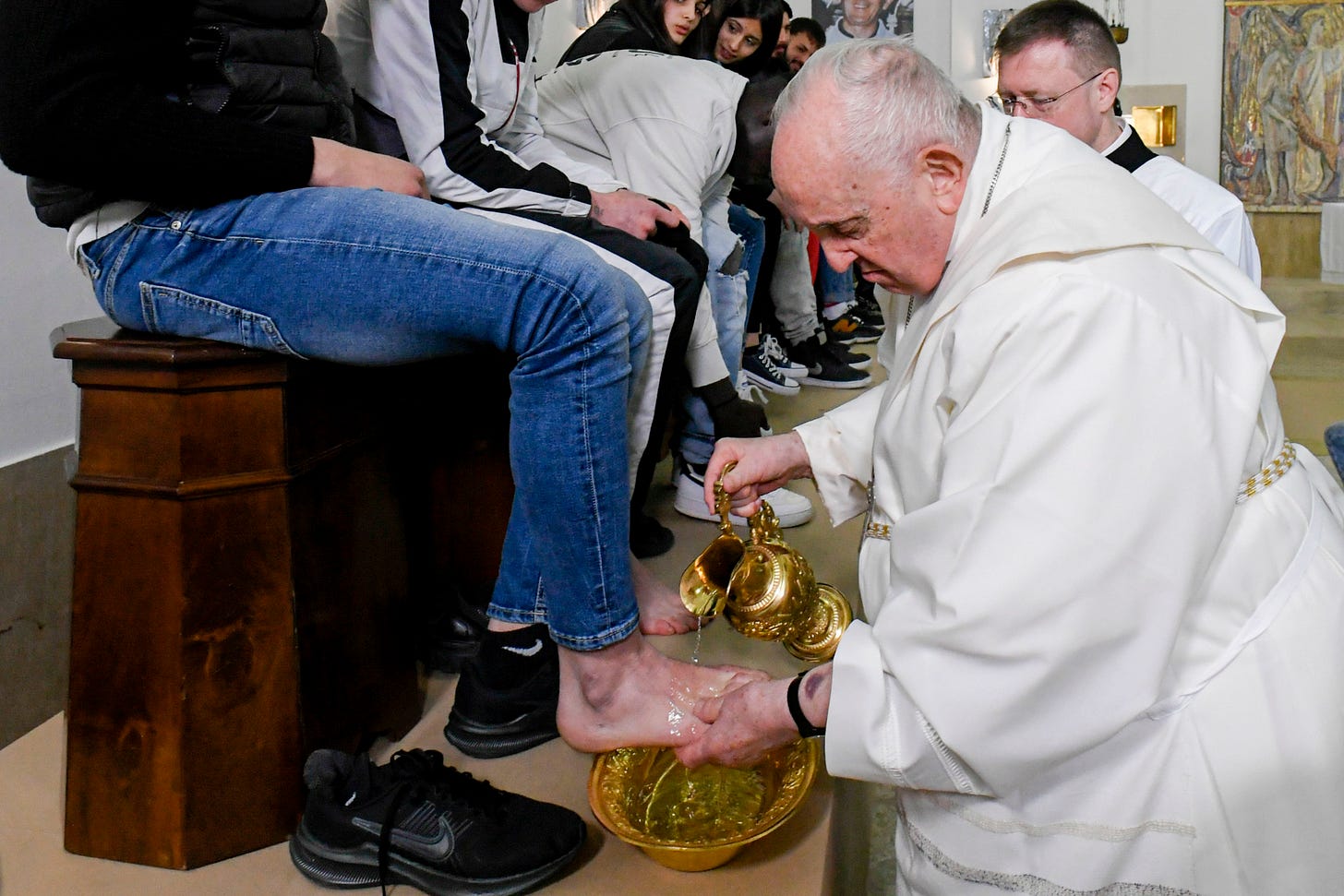Weakness Is a Strength
Pope Francis showed that leadership doesn't have to mean brute force.
Nicholas Russell is a writer from Las Vegas.
What use is strength in a mortal world? It’s the sort of koan-like question one expects to be frustrated by in the caption of an Instagram post. And yet it’s a genuine concern, one I’d been pondering in the days before and after Pope Francis’s death.
Though it can be specious to graft meaning onto common happenstance, it is fitting, at least for a Catholic, that Pope Francis died just after Easter, a holiday which many Christians recognize as the triumphant conclusion to the sorrow and inner reflection of Lent. What’s known as the Paschal, or Easter, season celebrates the resurrection of Jesus Christ after his crucifixion. One interpretation, a popular one, conceives of the resurrection as a solidification of God’s power over evil, the legitimating guarantee that his followers will be received into heaven.
This version of events always struck me as trite, even as a kid in Catholic school. It never made sense to me why God would put his son through such a horrific trial only to save him so swiftly afterwards. Why go through it at all? If God is all-powerful and all-knowing, the white-bearded, tyrannical surrogate of Zeus as often illustrated, what prevented him from simply making things go his way?
It seemed to me that this conundrum, which sits at the center of Catholic belief, was a metaphysical and philosophical problem that Pope Francis was concerned with on a global scale. The first pope to take the name Francis in the church’s nearly 2,000 year history, as well as its first Latin American leader (and first American leader, period), and the boldest post-Vatican II pontiff to reorient the Church’s mission, Francis’s focus, from the very beginning, settled on weakness and humility.



